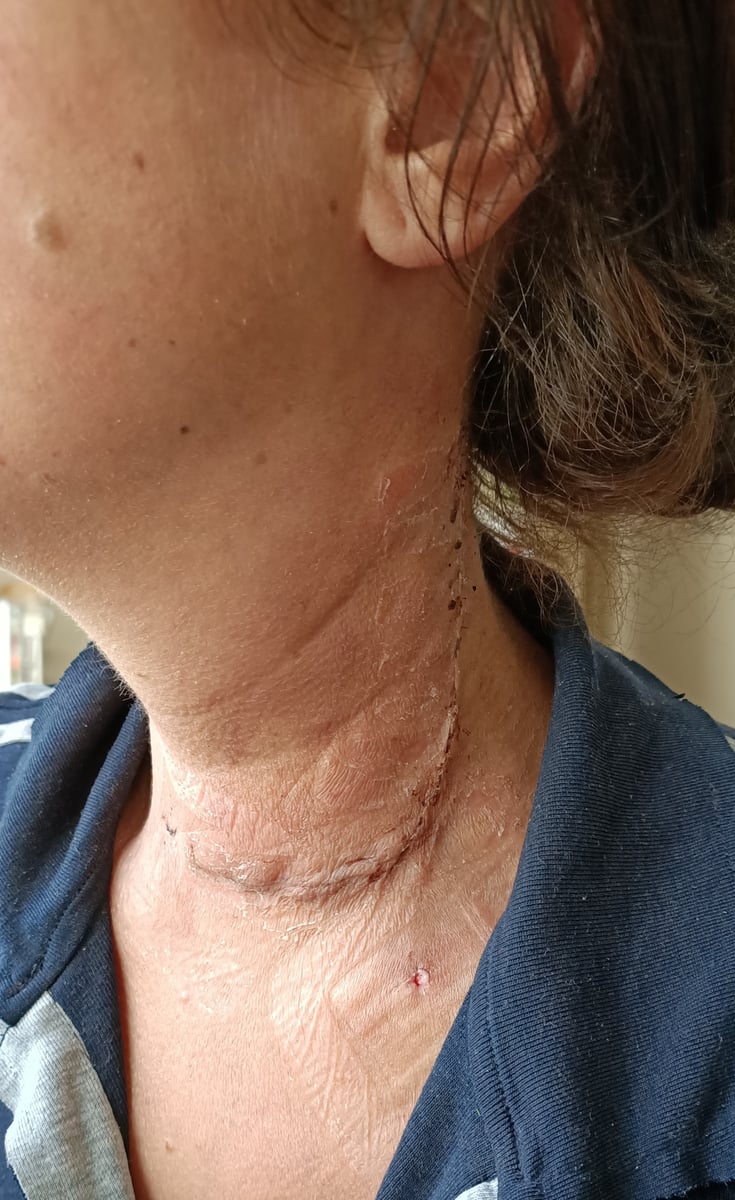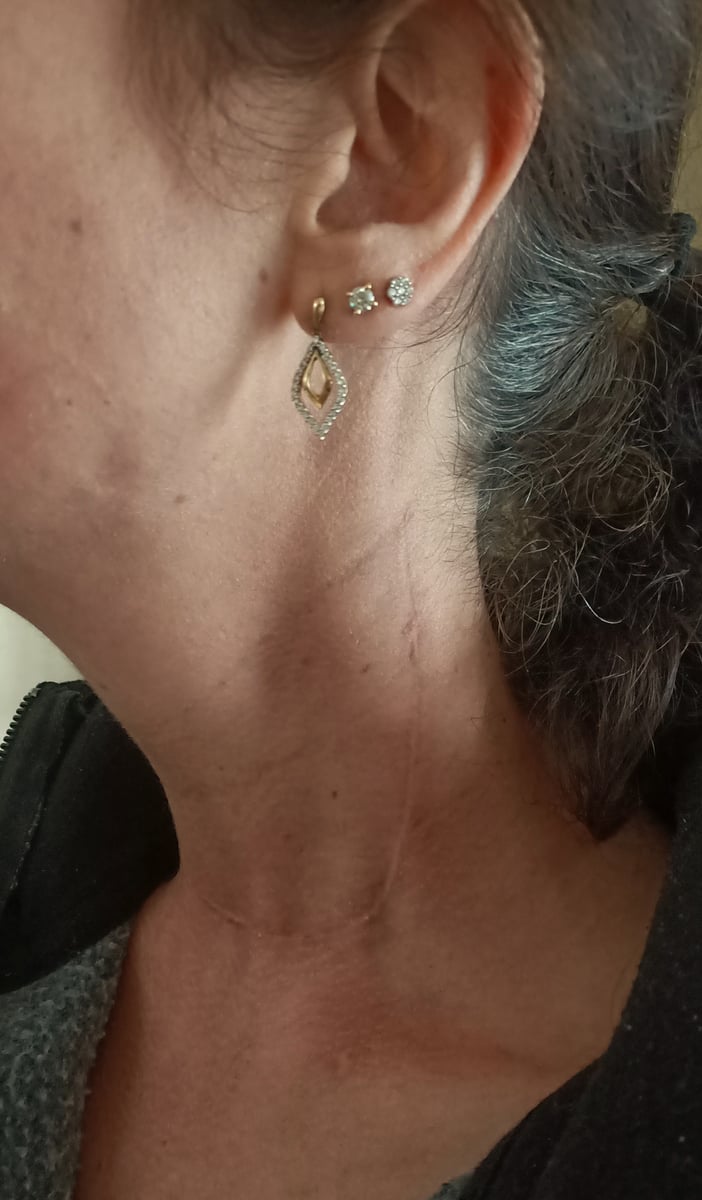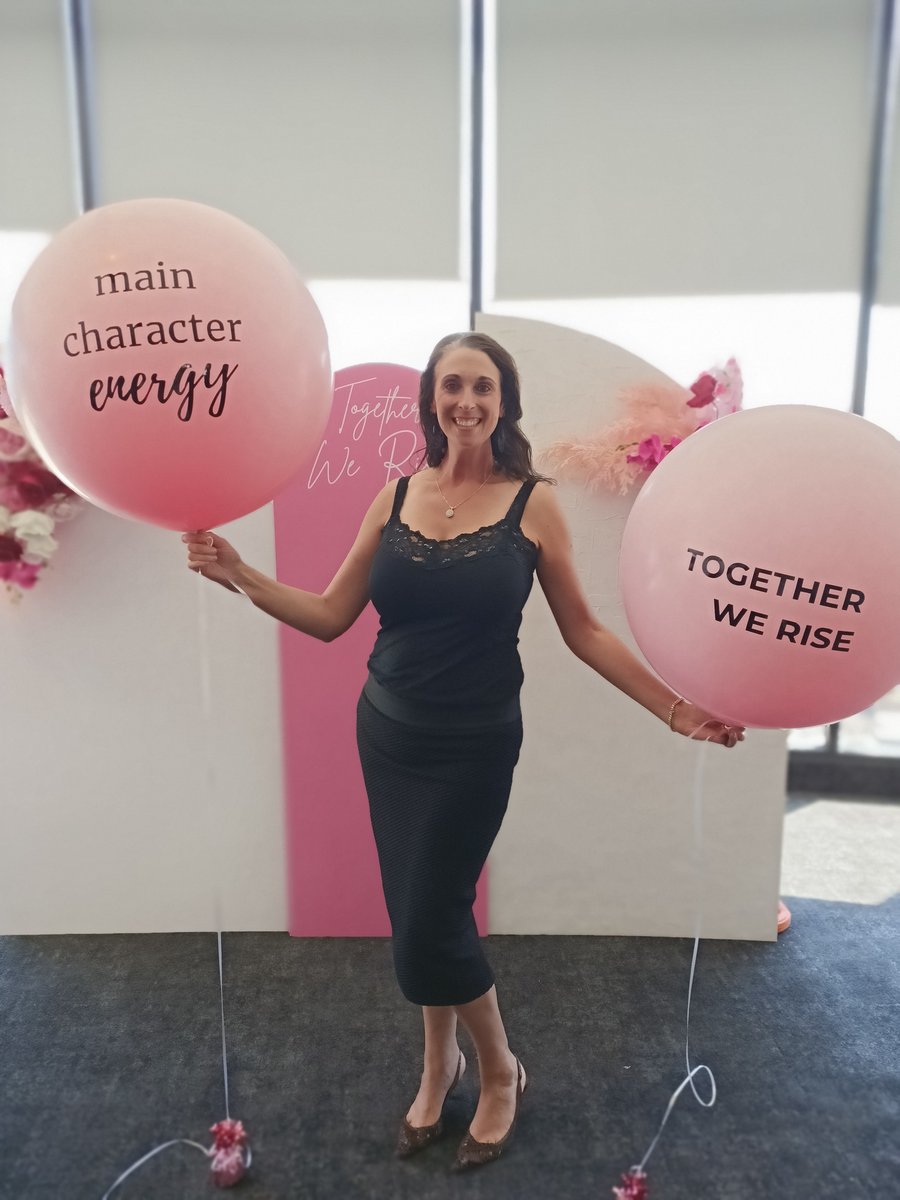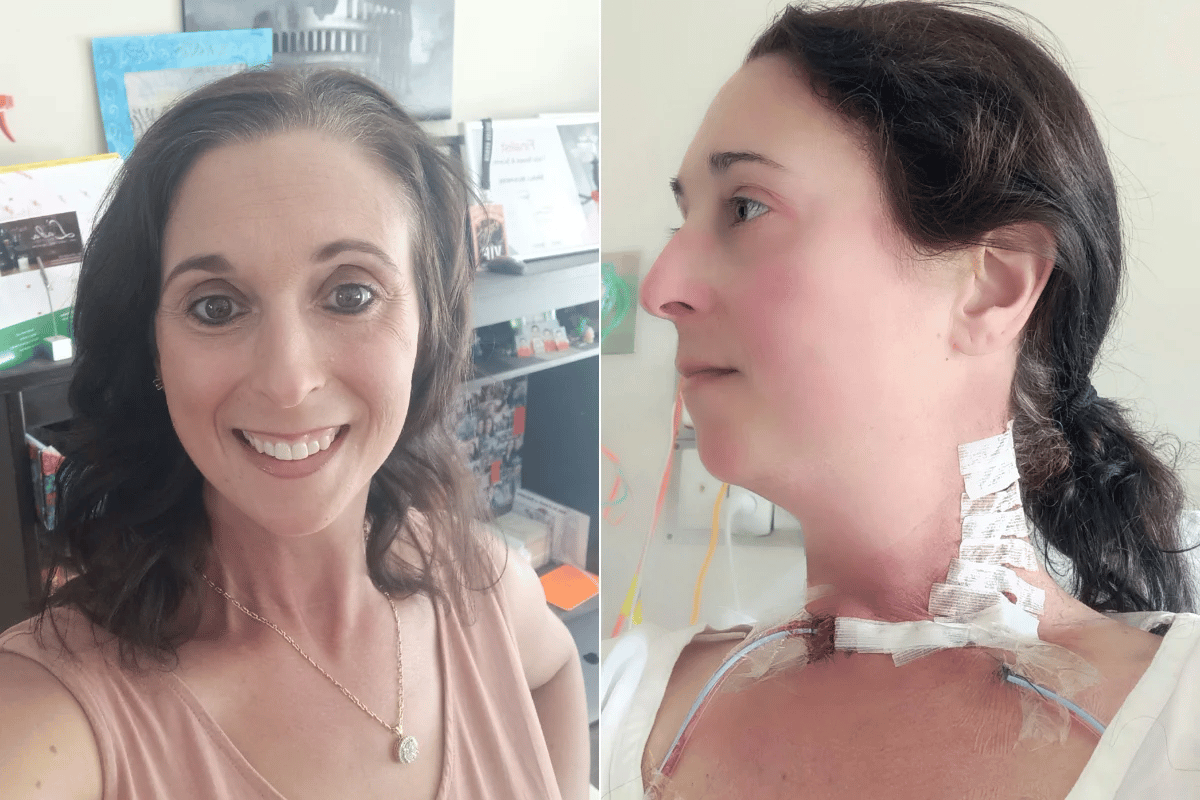
Deborah Terkely has always been vigilant about her health.
Running a family business and raising two sons has never got in the way of looking after herself.
Bloods, breasts, thyroid and iron — all checked annually. Sometimes more.
When a migraine floored Deborah before her 40th birthday in 2022, she took it seriously.
"I've never experienced one before," she said. "It was not normal."
To escape the agony, Deborah curled up on the lounge and hid in a dark bedroom. The "unbearable" head and neck pain lasted days. She thought the worst.
"Panadol wasn't doing anything. I was healthy, I didn't have a cold," she said. "I thought horrible things, like it must be a brain or spine tumour."
After three days of being immobile, unable to hold her head up or tend to her boys, then aged eight and six, she made an appointment with her GP.
"I've had the same doctor for 12 years; she knew me well. I explained my symptoms, and said 'I want an MRI, to give me the most detailed image'."
The doctor's reply stunned Deborah. "She said, 'Just take some Panadol. You'll be fine. You're getting old, Deb'."
She was 39.
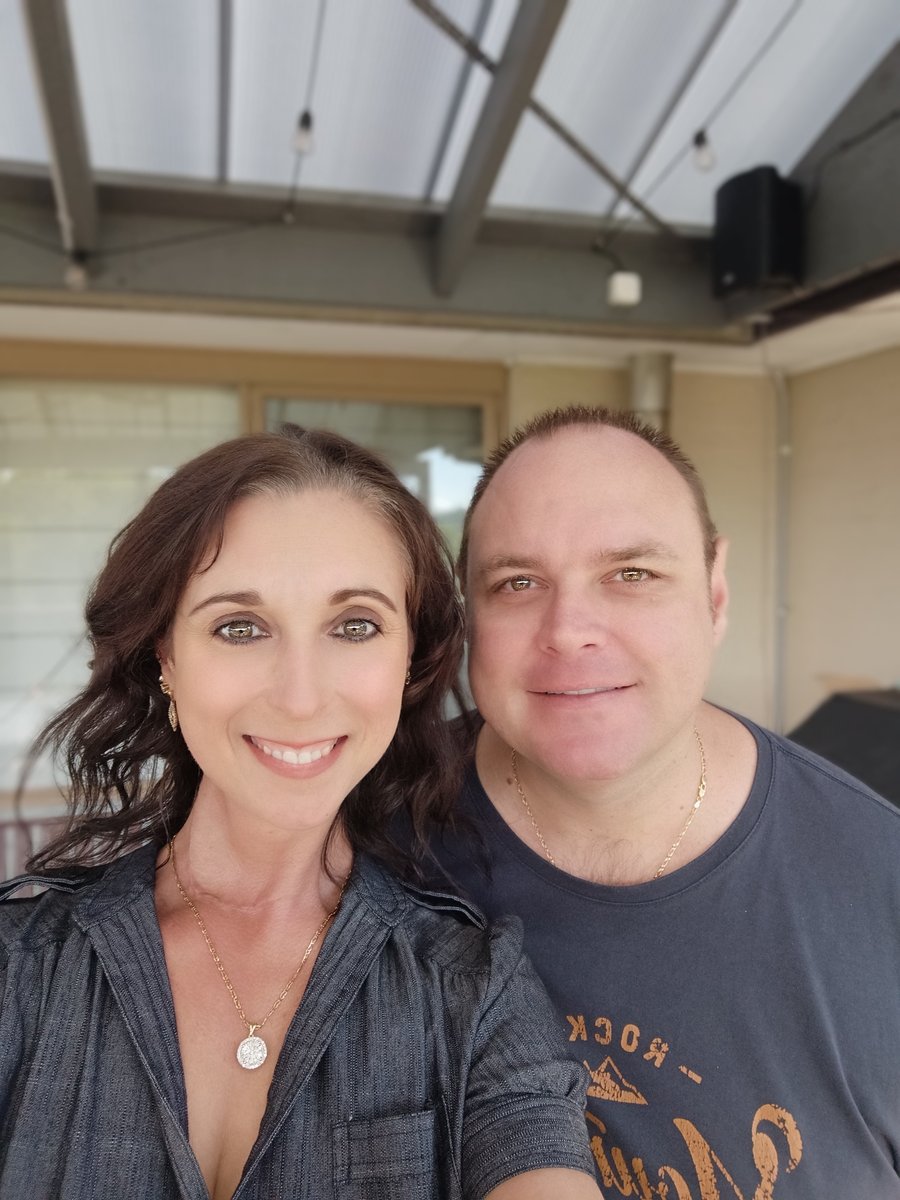 Deborah was 39 when she began suffering "unbearable" migraines. Image: Supplied.
Deborah was 39 when she began suffering "unbearable" migraines. Image: Supplied.

